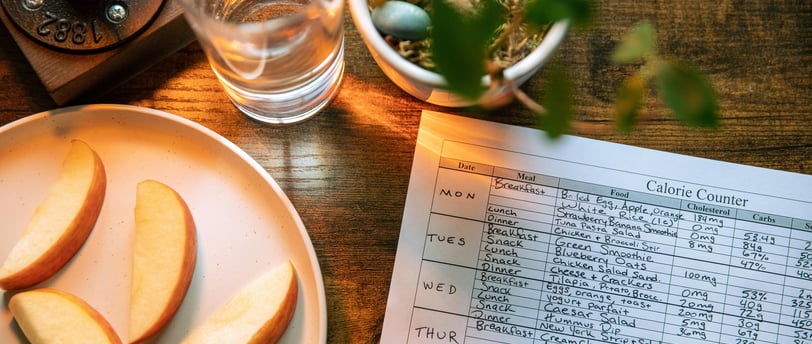Understanding Your Calorie Needs
Struggling with weight loss or muscle gain? Understanding your calorie needs is the key to success! This guide breaks down how to calculate your ideal intake, adjust for your goals, and make smarter food choices. Whether you’re cutting, bulking, or maintaining, get the facts you need to fuel your body right! 🚀
3/18/20252 min read


Have you ever felt like you're doing everything right—eating clean, working out—but the scale just won’t budge? Or maybe you’re trying to build muscle but can’t seem to gain weight? The secret often lies in understanding your calorie needs. Knowing how many calories your body requires can be a game-changer in your fitness journey.
Why Calories Matter More Than You Think
Calories aren’t the enemy, but not knowing your ideal intake can hold you back. Whether your goal is weight loss, muscle gain, or maintaining a healthy lifestyle, your calorie balance—the energy you consume versus the energy you burn—is key. But here’s the thing: Your needs are as unique as you are. So, how do you determine the right number for YOU? Let’s dive in.
What Affects Your Daily Calorie Needs?
Your caloric needs depend on several factors:
Basal Metabolic Rate (BMR): The calories your body burns at rest—just to keep you alive.
Activity Level: If you sit most of the day, you burn fewer calories than someone who’s constantly moving.
Age & Gender: Metabolism slows with age, and men generally need more calories than women due to muscle mass.
Weight Goals: Want to lose weight? You need a calorie deficit. Looking to build muscle? A calorie surplus is necessary.
How to Calculate Your Daily Calorie Needs
A simple way to estimate your calorie needs is using the Mifflin-St Jeor Equation:
For Men:
66 + (6.23 × weight in lbs) + (12.7 × height in inches) - (6.8 × age)
For Women:
655 + (4.35 × weight in lbs) + (4.7 × height in inches) - (4.7 × age)
Multiply your BMR by your activity level:
🏢 Sedentary (little to no exercise): BMR × 1.2
🚶♂️ Lightly active (1-3 days/week exercise): BMR × 1.375
🏋️ Moderately active (3-5 days/week exercise): BMR × 1.55
🏃♀️ Very active (6-7 days/week exercise): BMR × 1.725
🏗️ Super active (intense training or physical job): BMR × 1.9
This gives you your Total Daily Energy Expenditure (TDEE)—aka, how many calories you need to maintain your weight.
Smarter Food Choices for Better Results
It’s not just about how many calories you eat, but where they come from:
✅ Protein Power (chicken, fish, tofu, eggs) – Keeps you full longer and builds muscle.
✅ Healthy Fats (avocados, nuts, olive oil) – Support brain function and hormones.
✅ Smart Carbs (quinoa, sweet potatoes, veggies) – Provide steady energy.
⚠️ Processed & Sugary Foods – Can lead to energy crashes and weight gain.
Adjusting Calories for Your Goals
Now that you know your calorie needs, here’s how to adjust them:
🔥 For Weight Loss: Create a 500-calorie deficit per day to lose about one pound per week.
💪 For Muscle Gain: Increase intake by 250-500 calories daily, focusing on protein-rich foods.
⚖️ For Maintenance: Stick to your TDEE and prioritize balanced eating.
Counting calories isn’t about restriction—it’s about understanding what your body needs and making smarter choices. Using apps like MyFitnessPal or Cronometer can help simplify tracking. The key? Focus on quality foods, stay consistent, and listen to your body.
Whether you’re shedding pounds, bulking up, or just aiming for balance, knowing your calorie needs is your secret weapon. Once you get the hang of it, healthy eating becomes second nature.
